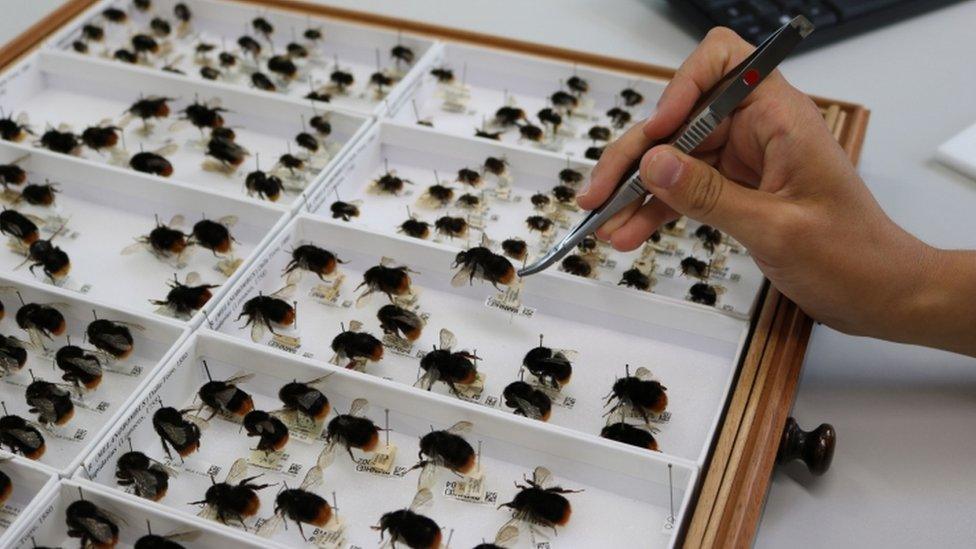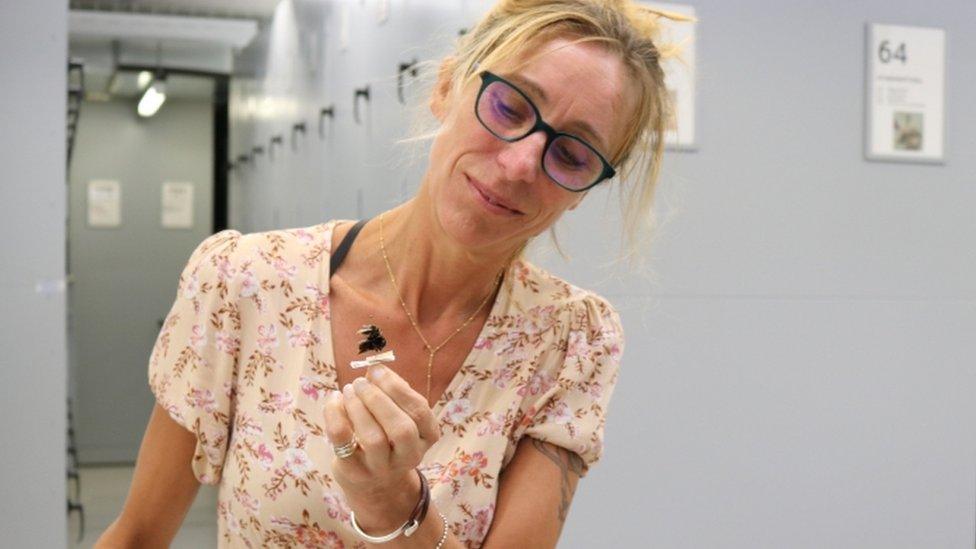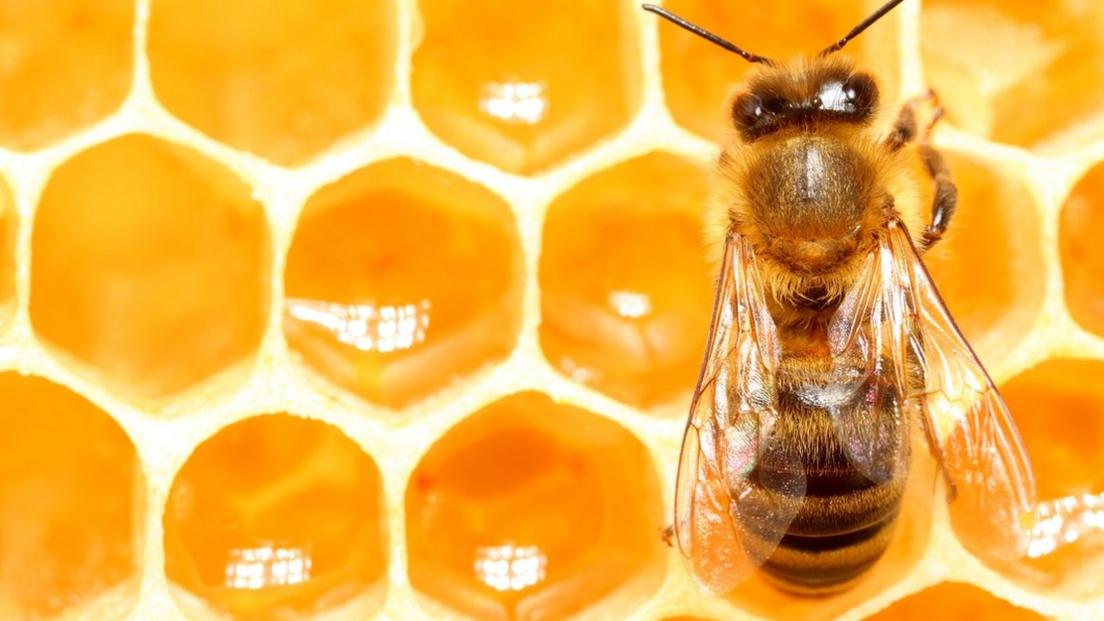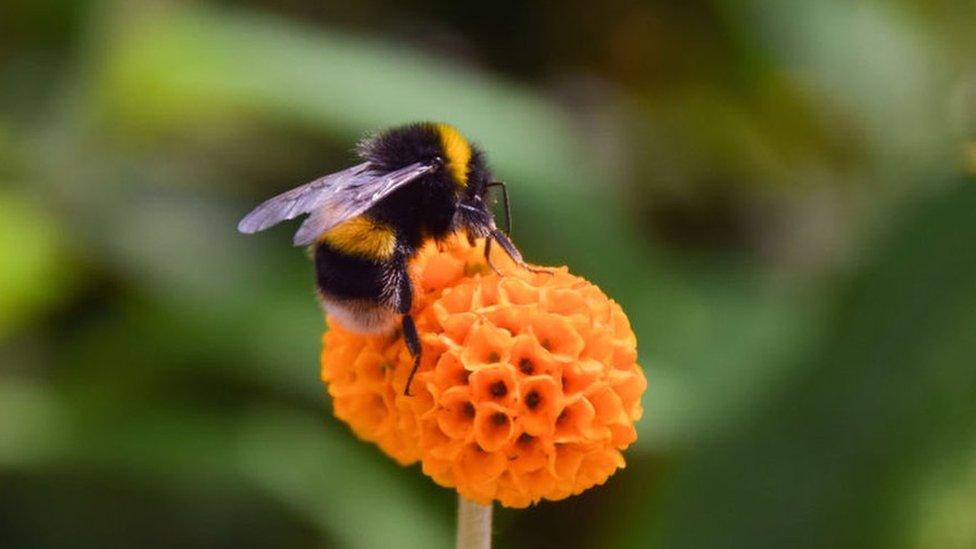Climate change can affect 'stressed' bees bodies
- Published
- comments
WATCH: Why are bees so important?
Bees are very important creatures that help provide a lot of the food we eat.
The population is under threat and new research has found bees have become increasingly stressed by climate change over the past 100 years.
Scientists studied bumblebee wings and found that they could link signs of stress to when conditions were hotter and wetter.
They looked at their body shapes using digital images and saw that high asymmetry - very different shaped right and left wings - had increased over the past 100 years.
Read more about the study below...
If you cannot see the interactivity on this page, click here.
The study

Researchers studied bee samples over 100 years old
Scientists from Imperial College London and the Natural History Museum published two research papers looking at bumblebee populations.
They studied four species of bumblebees dating back to 1900, from UK museum collections.
By comparing these results to the environmental changes, they concluded that when the bees were alive they were experiencing more stress when the weather conditions were hotter and wetter.

Scientists looked closely at bumblebee wings
We are seeing more extreme weather as the climate crisis continues, so the experts say these results suggest that bumblebees will be put under more stress in the future.
Dr Richard Gill from Imperial College London, who was involved with the study, said: "We're seeing that bees are declining in populations across the world.
"What our work is starting to do is explain when, where and potentially how this stress is being placed on these bee species."
Our goal is to better understand responses to specific environmental factors and learn from the past to predict the future.
Dr Gill also added that with hotter and wetter conditions happening more often "bumblebees may be in for a rough time over the 21st century."
Researchers hope the study can help protect bees in the future by looking at when people face the most stress and decline in the future.
- Published29 April 2020

- Published21 January 2022

- Published19 May 2020

